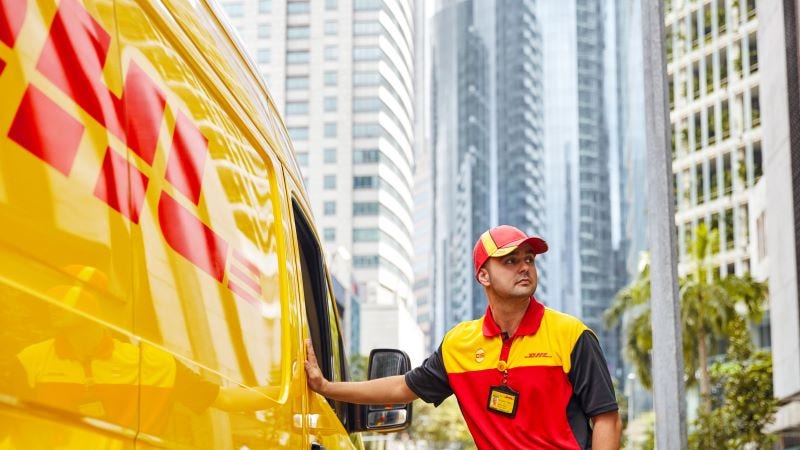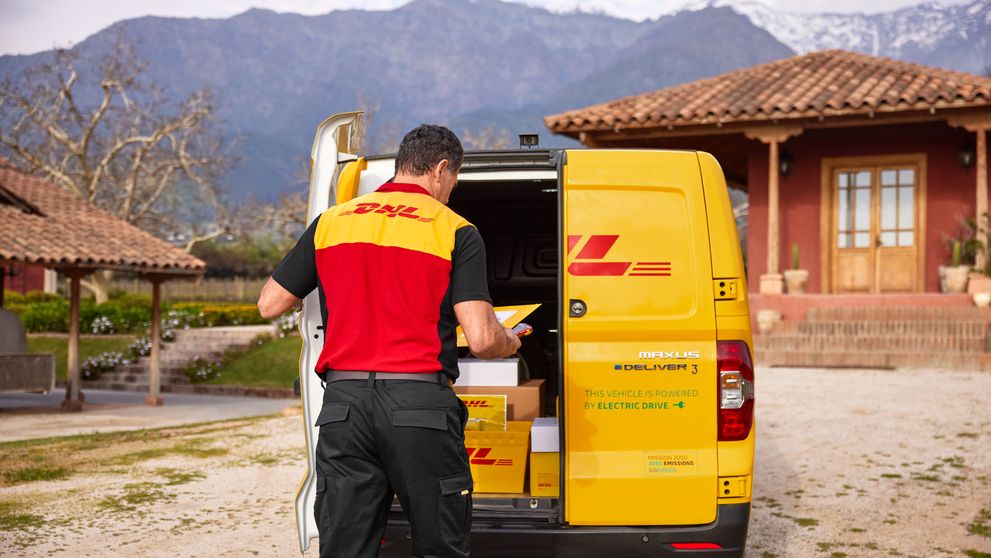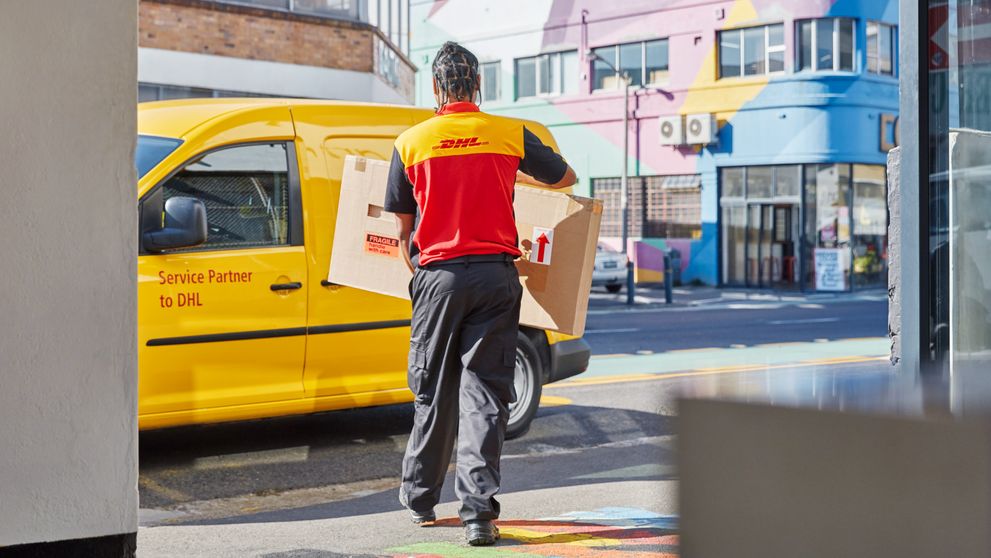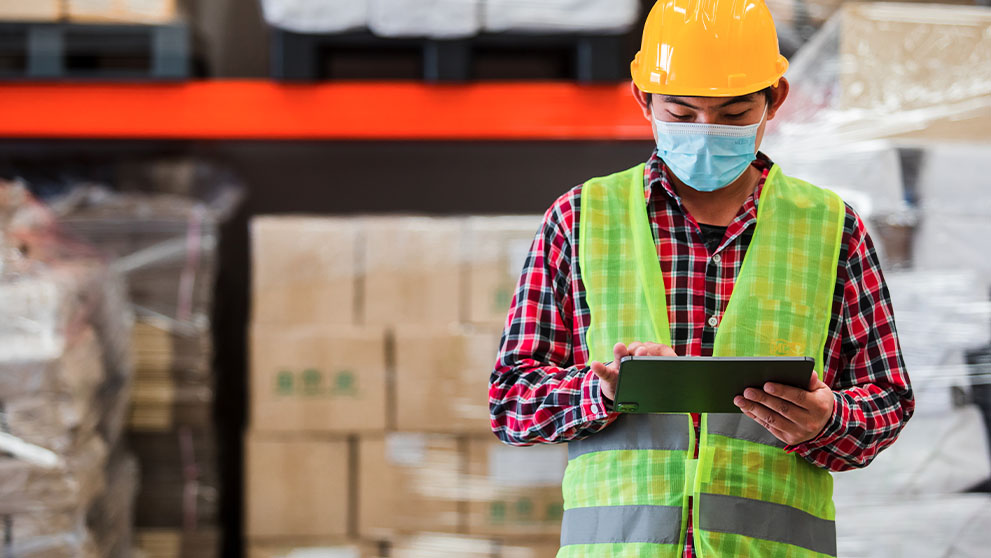The logistics landscape is experiencing dynamic shifts driven by technological innovation, sustainability demands, and generational consumer expectations. To navigate this ever-changing landscape and capitalize on the new and emerging market opportunities in Southeast Asia, businesses need to understand both generational preferences and regional variations. By tailoring their logistics strategies to these factors, businesses can gain an advantage and set themselves up for operational efficiency and success in the future.
This article explores key logistics trends and supply chain insights shaping the year ahead and how DHL Express can help your business adapt and thrive in today’s logistics industry.
Key logistics trends by country
Southeast Asia is a dense region with a rapidly growing economy and e-commerce market. As businesses expand their operations in this region, they need to be aware of the following key logistics trends:
Cambodia
Cambodia's logistics landscape is rapidly transforming due to e-commerce growth and evolving consumer expectations. Staying competitive requires understanding the logistics trends shaping the nation:
1. Rise of social commerce
Social media platforms like Meta (Facebook) and Instagram are becoming increasingly important for e-commerce in Cambodia as these platforms serve as the main source of information for local consumers. The Consumer Report 2023 published by Standard Insights in collaboration with Confluences highlighted that more than a quarter of Cambodians (29.97%) reportedly shopped online multiple times monthly. Therefore, businesses need to integrate their logistics with these platforms to enable seamless customer purchasing and delivery.
2. Focus on last-mile delivery solutions
As e-commerce grows, efficient and cost-effective last-mile delivery becomes crucial. This increasing demand for fast and reliable delivery has encouraged more local businesses to explore innovative solutions like drone delivery, micro-fulfillment centers, and partnerships with local delivery providers to optimize this final leg of the journey.
3. Growing demand for cross-border e-commerce
Cambodian consumers are increasingly purchasing goods from neighboring countries. Therefore, businesses must adapt their logistics to facilitate smooth cross-border transactions and deliveries, navigating customs regulations and optimizing for speed and efficiency.
Thailand
Thailand's logistics sector is experiencing significant growth and transformation, driven by government initiatives, technological advancements, and evolving consumer expectations. Here are the main trends to look out for:
1. Green logistics initiatives
Thailand is pushing for greener logistics through government incentives and regulations. This trend is driven by consumer demand for sustainable products and services, as well as government efforts to reduce carbon emissions. In November 2022, the government announced more ambitious climate targets as part of their Bio-Circular-Green (BCG) model to accelerate these efforts. This has encouraged businesses involved in shipping to Thailand to adopt alternative fuels, optimize delivery routes to reduce mileage and implement carbon offsetting programs to minimize their environmental impact.
2. Hyperlocal delivery services
The demand for quick and flexible delivery is driving the growth of hyperlocal delivery services in Thailand. A recent survey found that 74% of Thai online shoppers say that next-day delivery is important, highlighting the need for speed and convenience. This encourages businesses to partner with on-demand delivery platforms and utilize micro-fulfillment centers to offer same-day or even hour-long delivery options in urban areas.
Vietnam
Vietnam's logistics sector is booming due to its prominence as a manufacturing hub and e-commerce demands. Navigating this evolving environment requires staying informed about the future of the logistics industry:
1. Manufacturing hub
Vietnam's manufacturing sector is projected to reach a remarkable US$108.7 billion by 2025. Enhanced by government tax incentives and trade agreements like the Comprehensive and Progressive Agreement for Trans-Pacific Partnership (CPTPP) and the EU-Vietnam Free Trade Agreement (EVFTA), Vietnam is becoming an increasingly attractive manufacturing hub for global enterprises.
This surge in manufacturing activity necessitates robust logistics solutions to support the efficient movement of goods. Therefore, businesses need to optimize their supply chains to efficiently manage the flow of raw materials and finished goods. This involves implementing efficient inventory management systems, leveraging advanced transportation technologies, and partnering with reliable logistics providers.
2. Multimodal transportation solutions
To overcome limitations in infrastructure and optimize delivery routes, businesses shipping to Vietnam are increasingly adopting multimodal transportation solutions. This involves combining different modes of transport, such as road, rail, and waterways, to create efficient and cost-effective logistics networks.
3. Growth of fulfillment centers
According to Statista, the e-commerce market in Vietnam is expected to reach US$23.65 billion by 2029, driven by the increasing adoption of online shopping by Vietnamese consumers. With the rise of e-commerce, fulfillment centers are playing a crucial role in Vietnam's logistics landscape. Businesses are establishing strategically located fulfillment centers to optimize storage, order processing, and last-mile delivery.
Singapore
Singapore leads in adopting cutting-edge logistics solutions. However, for businesses to optimize supply chains, they have to monitor the logistics trend radar and align their process with trends like:
1. Autonomous delivery systems
Singapore is at the forefront of testing and implementing autonomous delivery systems, including drones and self-driving vehicles. More local businesses are exploring these technologies to enhance efficiency, reduce labor costs, and offer innovative delivery solutions.
3. Advanced supply chain visibility
Businesses involved in overseas shipping to and from Singapore are leveraging real-time data analytics and AI-powered platforms to gain end-to-end visibility across their supply chains. This enables proactive risk management, optimized inventory control, and improved decision-making.

Malaysia
Malaysia's logistics sector is modernizing rapidly due to the booming e-commerce market. To succeed, businesses must understand and adapt to logistics trends, such as:
1. E-commerce fulfillment optimization
Malaysia's e-commerce market is booming, driven by the increasing adoption of online shopping by local consumers. Statista reports that revenue in the Malaysian e-commerce market is projected to reach a market volume of US$13.43 billion by 2029, with an annual growth rate (CAGR 2025-2029) of 9.68%. To keep up with this growth, businesses are focusing on optimizing their fulfillment processes to meet the growing demand for fast and efficient delivery. This includes adopting strategies like drop shipping, utilizing third-party logistics providers (3PLs), and implementing warehouse automation.
2. Cross-border e-commerce growth
Cross-border e-commerce is gaining significant traction in Malaysia, with a large portion of consumers regularly purchasing goods from international online retailers. A survey by DHL revealed that over half of Malaysian consumers buy from online retailers in other countries, with 29% making a purchase at least once a week and 51% doing so once a month. As such, businesses need to adapt their logistics to facilitate smooth cross-border transactions and deliveries, ensuring compliance with customs regulations and providing competitive shipping options.
Indonesia
Indonesia's e-commerce growth brings unique logistical challenges due to its geography and evolving consumer expectations. Understanding these key logistics trends and insights is crucial for success:
1. Archipelago challenges
Indonesia's archipelago geography presents unique logistical challenges for businesses involved in shipping goods across the country. With thousands of islands spread across a vast area, efficient and reliable transportation networks are crucial for reaching customers in all corners of the archipelago. Businesses need to develop robust inter-island transportation solutions, optimize delivery routes, and leverage technology to overcome these geographical hurdles and ensure timely delivery.
2. Growth of Omnichannel Retailing
Indonesian consumers increasingly embrace omnichannel retail experiences, blurring the lines between online and offline shopping. At the Retail Asia Forum 2024, Richard Stanley of K3Mart emphasized the importance of experiential retail, stating, "The future of retail is experiential. Customers are looking for more than just transactions; they want meaningful interactions and memorable experiences." This highlights the need for businesses to create a seamless and integrated shopping experience across all channels. As such, more local businesses are integrating their online and offline channels and logistics, offering options like click-and-collect, in-store returns, and seamless delivery to meet these evolving expectations.
Understanding generational expectations
Aside from regional variations in logistics trends, different generations have unique expectations when it comes to logistics. By understanding these generational expectations, businesses can tailor their logistics and offerings to meet the specific needs of each group and drive more engagement and brand loyalty. Here are the key generational trends shaping the logistics landscape:
- Gen Z and Millennials: These generations demand instant gratification and expect fast and reliable delivery. They are also increasingly concerned about sustainability and environmental impact, preferring eco-friendly shipping practices.
- Gen X: This generation values affordability and transparency. They are more likely to compare prices and seek out the best deals while prioritizing clear communication and reliable delivery.
- Baby Boomers: This generation prioritizes reliability and security regarding shipping. They are more likely to choose traditional shipping methods and prefer to speak to a customer service representative if they have any issues.
Preparing your business for 2025 logistics trends
To thrive in the evolving logistics landscape, businesses should also implement several basic key strategies:
- Flexible Strategies for Regional Variations: As each region has unique logistics challenges and opportunities, businesses need to develop flexible strategies to adapt to these differences. This may involve partnering with local logistics providers, investing in regional infrastructure, and tailoring their offerings to meet the needs of each region.
- Understanding Generational Preferences: Businesses should segment their logistics offerings based on generational expectations. This involves tailoring delivery options, communication channels, and pricing to meet the needs of different age groups.
- Partnering with the Right Logistics Provider: Choosing the right logistics partner is crucial for success. Look for a provider, such as DHL Express, that offers innovative solutions, advanced technology, and a commitment to sustainability.
Staying ahead in the logistics game
The logistics industry today is evolving rapidly, influenced by regional variations and generational demands. To stay competitive in their own sectors, businesses must embrace new technology, prioritize sustainability, and adapt to these dynamic trends.
DHL Express is a leading global logistics provider that has a wide range of solutions to support businesses navigating the complexities of international shipping and supply chain efficiency. We are committed to providing flexible, sustainable, and customer-centric services that meet the changing needs of our clients. We can also help you streamline your logistics operations and ensure timely and efficient delivery of your goods.
Open a DHL Express business account today to gain access to our extensive network, expertise, and advanced solutions.
1 - B2B CAMBODIA, July 2023
2 - Khmer Times, August 2023
3 - Economist Intelligence, February 2023
4 - The Laotian Times, October 2024
5 - Vietnam Briefing, January 2025
6 - Statista, Accessed 2025
7 - Statista, Accessed 2025
8 - DHL, Accessed 2025
9 - The Asian Business Review, June 2024



















